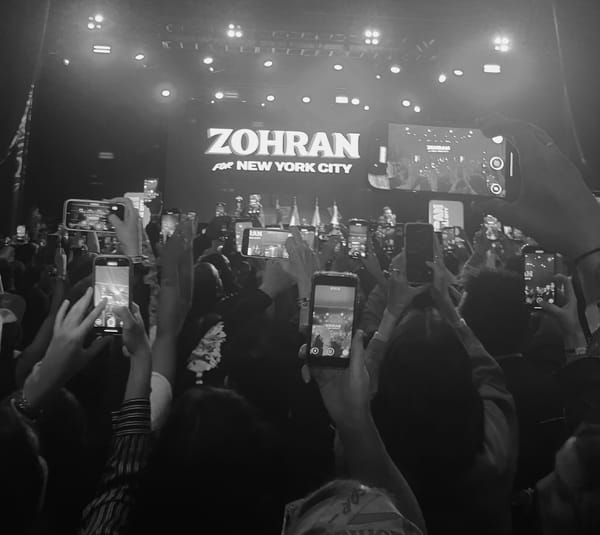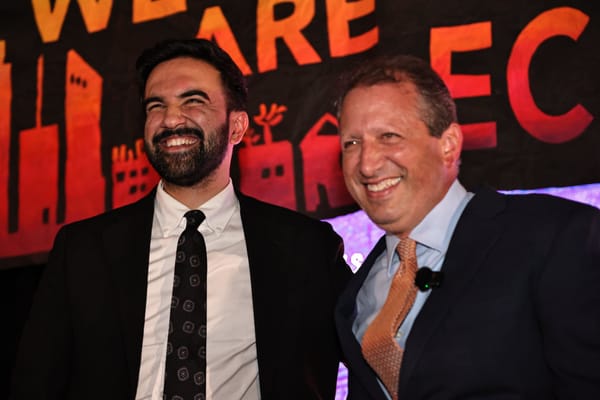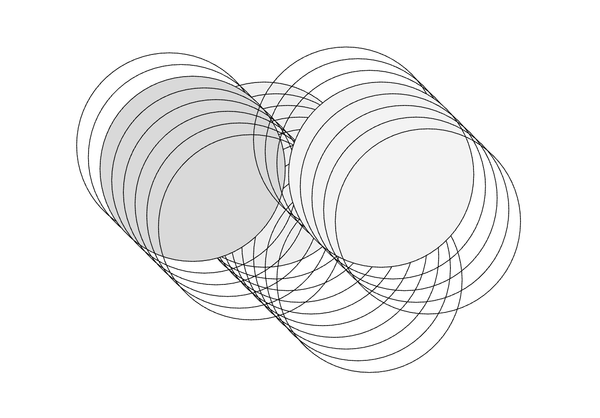Yet More Words About Israel
Or: the easy ways to violence
On the first of my three trips to Israel — before ambivalence turned to skepticism and then skepticism became scorn — I stood in a military cemetery and imagined myself one of the returned and fallen. This is not a unique experience. Birthright trips, among others, take young Jews of the diaspora through the Holocaust museum and onto the cemetery on Mount Herzl, stuffed with graves of foreign-born Jews killed in Israel’s many wars, for exactly this reason. To imprint the looming forces of destruction; to offer a role in the defense of a people, a people who depend upon that land. It worked on me. Not just as someone from a family of generations of migration, but as young man wondering all the young man’s questions about identity, purpose, and power. I could come back here if they really needed me. I didn’t think so much about what they’d need me to do: fight, control, kill, be killed.
Some young Jews stand there and then follow through, moving to Israel and enlisting in the IDF. For many reasons, I was never closer to that path than at that moment, and have spent the last 15 years moving further and further away from it.
I’m thinking about that feeling now when I think about the physical and moral catastrophe unfolding around that hill. Hamas militants have slaughtered hundreds of Israeli civilians; the Israeli military will soon slaughter hundreds of Gaza’s civilians, if they have not already. One side will be slightly more apologetic about it, but the dead will still be the dead and the killers will still be killers.
But it’s not just about them, but about the survivors who — and you can really sense it happening in real time — are enduring pain and trauma that will grow them into a story they’re offered for how they will survive, and yes, that story will involve violence.
We know this will happen because we’re already here.
Because young Israelis spend formative years in military fatigues oppressing Palestinians; because young Palestinians grow up being oppressed by young Israelis and sometimes attack them back, too. Gazans spend years and years deprived of basic rights to live and move, while what’s inside their open-air prison is periodically blown to the ground, and then they are sufficiently desperate that they march openly towards sniper fire, and then, endowed with anger and pain so deep it can not only recruit and fortify the conviction of masses of fighters seeking death for others and themselves, but also so shared that, seemingly, an entire urban area under constant surveillance and control could and would keep their surprise attack a secret, they burst towards extraordinary and depraved violence.
This is not so mysterious. The question seems to be, who will replace the killers ten years from now, and who will replace the dead? Who in Gaza will be willing to die for some idea of liberation and who in Haifa willing to lead efforts towards extermination?
And more broadly, who will be supporting them.
It’s that question I have the better chance of answering. These moments are formative for the rest of us, too. We are also subject to deciding that violence will be normal or justified or even glorious, exalted. It does not require that much — even a single place and time — to begin to be romanced into a story, a story that we would find out requires us to embrace or commit brutal acts.
The initial answers have not been promising.
The right wing has predictably called for the complete destruction of Gaza. The center has been triggered into its most defensive acquiescence to “whatever Israel needs,” which in effect, is an endorsement of the same means. But it is on the Left that I have been the most surprised, with plenty of postures towards Hamas’s actions ranging from apologism to celebration. A consensus on violence, just supply your reason.
I focus on the Left not just because it is also my political home but because it’s in the Left that this contortion is demonstrating itself now. I am struck by this because particularly when we most need lt, there seems to be a scarcity of the positions I would consider simple ones:
- Oppression is wrong
- Resistance to oppression is justified
- Killing civilians is wrong and any death is a tragedy
Instead, I’ve largely seen an inability to simultaneously support liberation, condemn Hamas’s violence, and sustain opposition to the Israeli government.
Among the global left, broadly, there are many reasons why this could be happening and, in many cases, that it isn’t so new. But at least among some portion of Americans and Europeans, it seems to be that simply watching this oppression — a distant but lengthy disdain for Israel mediated through social media and news — has twisted some on the Left so far that they are celebrating violence they would otherwise abhor. (It is also possible they are simply performing support, or holding a silence afraid of their comrades, but the effect is the same). With them and beyond, it seems like the death of Israeli civilians seems to be some kind of blood price, some compensation for oppression there and elsewhere.
If that seems twisted, it’s because it is. That’s the thing about these stories of pain and survival: they twist. They do so in ways that would otherwise contradict our steadfast human values. I’d never fathomed joining the American military’s conquests, but wondered about another one — most diasporic Jews living otherwise liberal lives would never accept elsewhere the brutality Israel has enforced upon Palestinians…and yet they have in the West Bank and Gaza, and for decades.
Only a very small number of the rest of us out here will be transformed from this moment towards committing violence ourselves. But most of us will be implicated in supporting, or rebuking, the stories that sustain it. It will happen materially through “urgent appeals” from our Jewish communities and through the political representatives we choose to guide our countries’ resources and force towards oppression. It will also happen, it seems, when our own movement organizations embrace or accept gross bloodshed.
But beyond and behind these structures are how we decide to tell the story to one another and what we will choose to believe. I really didn’t feel like writing yet more words about Israel. Generally: there’s already plenty of it. Personally: I’d prefer to not have violence and oppression framing my Jewishness at all. Yet I can’t help seeing that horrible myth of violence strengthening in front of us every day, and strengthening with every new recitation. Maybe something, no matter how minute, can be a tiny push against it. Maybe we’ll eventually have enough tiny pushes to topple it.
I am not hopeful. And still: there’s always a possibility that faced with such calamity, there may be a recognition that it just can’t be worth it. That it won’t work. A flip from the necessity of violence to the conviction it is precisely what got us to this moment. If that story will change there, it can only have a better chance if it isn’t reiterated and confirmed so vehemently elsewhere.
What would it take, I wonder, for some descendants of mine to think about that same hill and feel no call towards purpose, but simply loss and heartache at how wrong we all were for so long.



